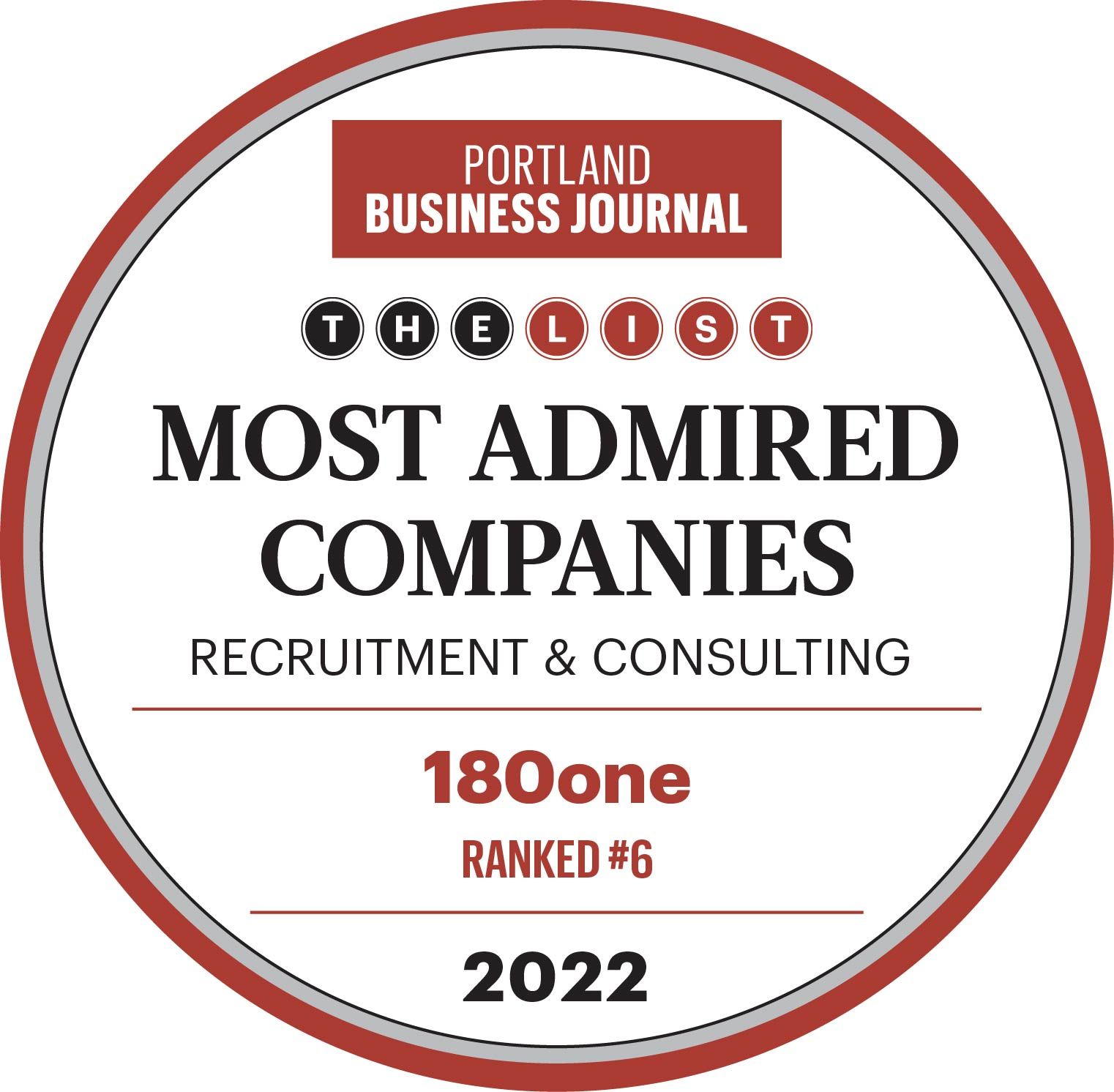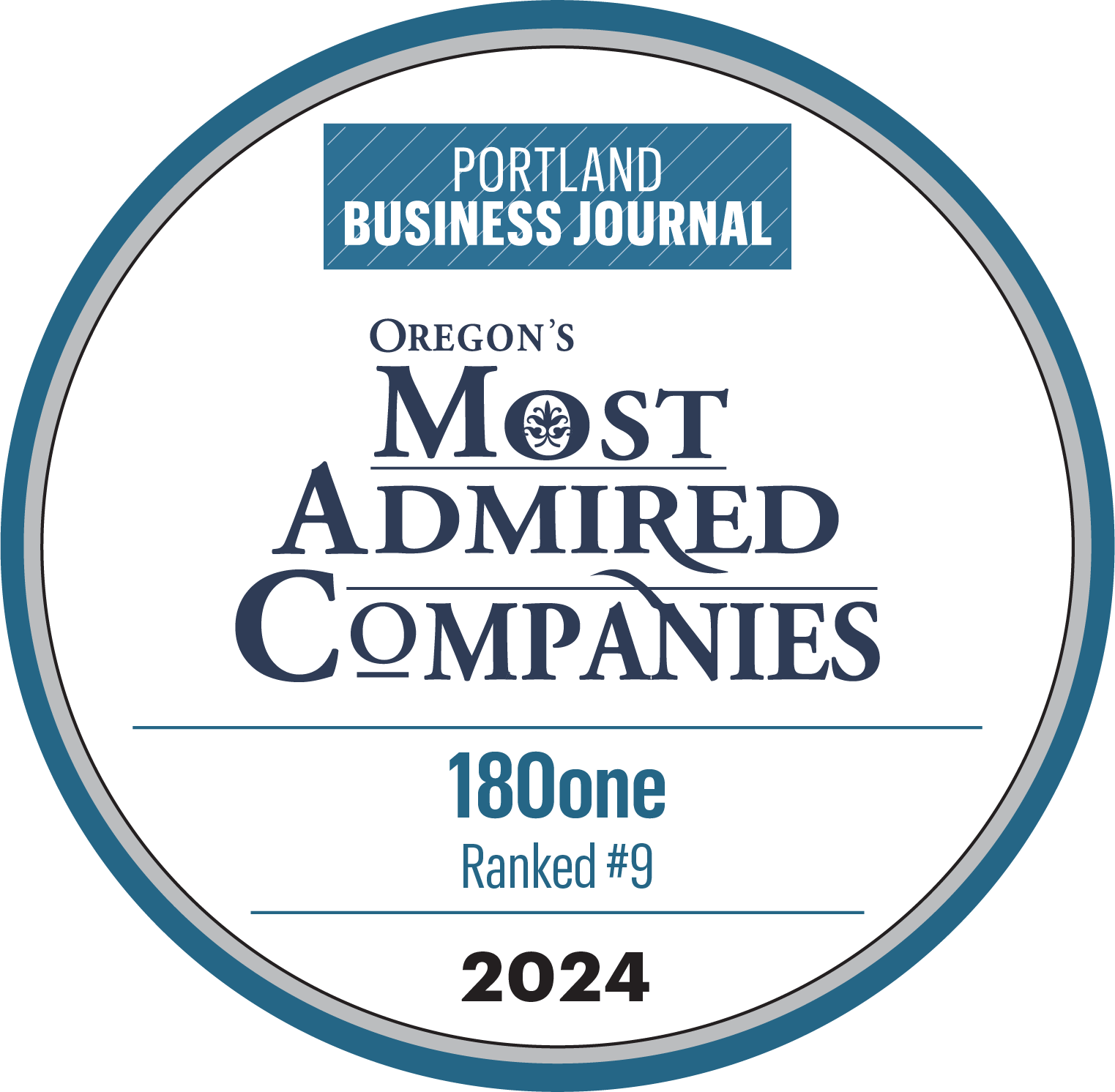Water cooler wisdom
In the news
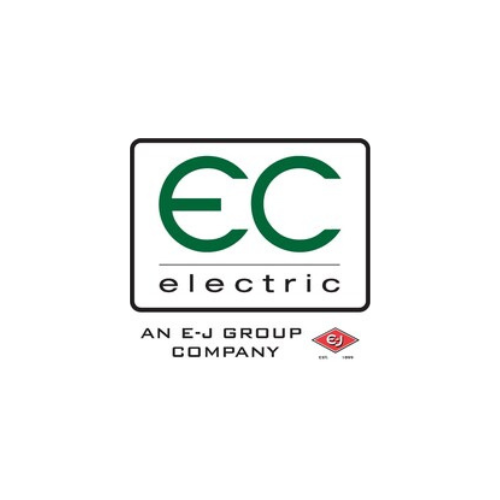
Chief Executive Officer ABOUT THE COMPANY EC Electric is an innovative electrical contracting firm dedicated to powering lives across various sectors, including mission-critical AI data centers, semiconductor chip manufacturers, industrial, federal work, commercial, and renewable energy projects. With a commitment to providing high-quality electrical solutions, the company specializes in cutting-edge technologies and sustainable practices. Known for its robust service offerings, including electrical construction, maintenance, and energy management, EC Electric stands out in the marketplace by focusing on safety, efficiency, and customer satisfaction. This $500 million-a-year company is part of the E-J Group of Companies across the nation, celebrating our 127th year of private ownership. Our mission is to create a brighter, more electrified future while upholding our values of integrity, safety, quality, equity, fulfillment, and profitability. ABOUT THE POSITION As the Chief Executive Officer , you will be the visionary leader of EC Electric, steering the company's strategic direction and operational efficiency to achieve sustainable growth and innovation in the electrical contracting industry. You will collaborate with the executive team, employees, and stakeholders to enhance our reputation as a leading provider of electrical services and solutions, ensuring we remain agile and responsive to market demands. DUTIES & RESPONSIBILITIES Strategic Leadership: Develop and articulate a clear vision and strategic plan that aligns with EC Electric's mission to drive profitability and market expansion. Initiate strategic partnerships and alliances that leverage EC Electric's capabilities in renewable energy and advanced electrical systems. Operational Excellence: Oversee operational processes, ensuring the execution of projects aligns with EC Electric's commitment to safety, quality, and timely delivery. Utilize data-driven insights to improve operational efficiencies and manage resources effectively across all business units. Innovation and Sustainability: Drive the adoption of innovative technologies and sustainable practices within the company to enhance service offerings and reduce environmental impact. Encourage a culture of innovation, empowering teams to explore new solutions that meet the changing needs of clients in a dynamic industry landscape. Stakeholder Engagement : Cultivate long-term relationships with clients, contractors, and community partners to enhance visibility and reputation in the industry. Represent EC Electric in industry associations and public events, positioning the company as a thought leader in electrical contracting and energy solutions. Financial Management: Ensure fiscal responsibility by overseeing budgeting processes, expense management, and financial forecasting to meet the company’s growth objectives. Identify opportunities for cost efficiencies and revenue generation through new service offerings and market penetration strategies. Workforce Development: Promote a positive and inclusive workplace culture that prioritizes employee engagement, safety, and professional development. Sustain and expand training/mentorship programs to develop future leaders within the organization and ensure a skilled workforce ready to tackle evolving industry challenges. Compliance and Governance: Ensure compliance with all industry regulations, safety standards, and environmental practices, maintaining EC Electric’s strong reputation for integrity and excellence. Implement risk management strategies to safeguard the company’s assets and sustain its operational integrity. QUALIFICATIONS Bachelor’s degree in business administration, engineering, or related field; MBA or relevant advanced degree preferred. 15+ years of experience in senior leadership roles within the electrical contracting or related construction industries. Proven ability to drive business growth and operational success in a competitive environment. Strong analytical and problem-solving abilities, with a focus on data-driven decision-making. Excellent communication and interpersonal skills, adept at fostering collaboration and motivating teams. Advantages of Working at EC Electric: Leading electrical contracting organization focused on innovation and sustainability. Commitment to employee development and career advancement opportunities. Comprehensive compensation and benefits packages, including health and wellness programs. Supportive corporate culture values community engagement and social responsibility. Opportunity to work on high-impact projects that shape the infrastructure of communities. Interested in Learning More? 180one has been retained by EC Electric to manage this search. If interested in learning more about the opportunity, please contact Nicole Brady at 503-699-0184 or via email at nicole@180one.com . EC Electric is an Equal Employment Opportunity Employer and ensures equal employment opportunity for all persons without discrimination based on race, color, religion, sex, sexual orientation, national origin, age, disability, marital status, citizenship, or any other characteristic protected by law. Physical Demands: The physical demands described here are representative of those that must be met by an employee to successfully perform the essential functions of this job. Reasonable accommodations may be made to enable individuals with disabilities to perform the essential functions. While performing the duties of this job, the employee is regularly required to use their hands and talk or hear. The employee is frequently required to stand, walk, sit, reach with hands and arms; climb or balance, and stoop, kneel, crouch, or crawl. The employee must occasionally lift and/or move up to 50 pounds. Work environment: The work environment characteristics described here are representative of those an employee encounters while performing the essential functions of this job. Reasonable accommodations may be made to enable individuals with disabilities to perform the essential functions. This includes the ability to have close (clear vision 20 inches or less) and distant vision (clear vision 20 inches or more), Depth Perception (three-dimensional vision, ability to judge distances and spatial relationships); Ability to Adjust Focus (ability to adjust the eye to bring an object into sharp focus), and the ability to see color. The noise level in the work environment can be quiet, moderate, or loud.

Few decisions carry more weight, or more emotional friction, than upgrading management. Whether in a private equity–backed business or a closely held private company, leaders know the decision matters. They also know it’s uncomfortable. Incumbent executives may have helped close the deal, built the business, or earned deep loyalty from employees and customers. In that context, waiting can feel prudent, even humane. Yet across ownership structures, cycles, and industries, the evidence points in one direction: delaying action on leadership misalignment quietly erodes value long before performance visibly breaks. What the Data Consistently Shows Research across management transitions paints a consistent picture. Roughly half of PE-backed companies replace the CEO within the first two years of ownership, with many changes occurring in the first year. Studies of executive transitions show failure rates between 30% and 40% in the first 18 months, most often driven not by incompetence but by misalignment- on mandate, pace, or priorities. The lesson is not that boards are impatient. It’s that leadership fit matters more than familiarity, and a misfit rarely corrects itself with time. The Most Expensive Period Is After Doubt Sets In By the time a board or ownership group agrees that a leadership upgrade may be needed, value erosion is often already underway. Growth initiatives slow. Decision-making becomes cautious. Reporting grows heavier as leaders explain results instead of driving them. High performers sense uncertainty and begin to disengage. In PE-backed environments, this dynamic plays out faster and with fewer buffers. But private companies experience the same slow bleed, just over a longer horizon. The “One More Quarter” Fallacy “Let’s give it one more quarter” is one of the most expensive sentences in governance. Boards and owners often justify delay by pointing to an initiative in flight, system implementation, or temporary market headwinds. But studies of executive performance show that trajectory matters more than absolute results. If clarity, momentum, and conviction are not improving, time rarely fixes the issue. A common pattern: leadership change is debated for several quarters. When a new executive finally steps in, they make decisive moves within 60 to 90 days, moves that had been discussed, analyzed, and deferred for a year. The opportunity cost of that delay is real, even if it never appears cleanly in the P&L. Missed Windows Are Permanent Losses The most dangerous cost of waiting is not short-term underperformance; it’s a missed opportunity. In PE-backed companies, similar windows appear around add-on acquisitions, operational transformations, or pricing resets. A capable but misaligned leader can miss those windows by moving too slowly or pulling the wrong levers. Once missed, those opportunities rarely reopen on the same terms. Loyalty Is Expensive, But So Is Delay Many delayed leadership changes stem from understandable loyalty: to founders, long-tenured executives, or leaders who were instrumental during diligence or early growth. But fiduciary responsibility ultimately outweighs emotional equity. The most effective boards separate gratitude for past contributions from clarity about future requirements. They also recognize that earlier action is usually kinder. Early transitions allow for controlled narratives, thoughtful role changes, and dignified exits. Late-stage changes tend to feel abrupt, personal, and destabilizing. A Simple Test for Owners and Boards One question cut through most debates: If we were hiring for this role today, knowing what we now know, would we make the same choice? If the answer isn’t an unambiguous yes, delay rarely improves the outcome. Another signal is how leadership discussions consume time. When meetings shift from strategy and growth to coaching, shielding, or compensating for leadership gaps, the decision has often already been made, just not acknowledged. Why Smart Owners Explore the Market Early High-performing PE firms, and increasingly, sophisticated private owners, often explore the executive market before a final decision is reached. This isn’t about undermining management; it’s about sharpening judgment. Seeing the caliber of available talent reframes the question from “Can this work?” to “Is this the best we can do?” In many cases, an external perspective provides clarity faster than another quarter of internal debate. Timing is Everything Upgrading management is never easy. But the evidence, data, deals, and lived experience are clear: indecision is rarely neutral. The organizations that consistently outperform aren’t the ones that change leaders most often. They’re the ones who change them on time. And in a world of compressed timelines, competitive markets, and rising expectations, timing isn’t just a leadership issue; it’s a value creation issue.

General Counsel ABOUT THE COMPANY A-dec is the premium leader in the dental equipment industry, designing and manufacturing products that span dental chairs, lights, handpieces, furniture, air management, infection control, and delivery systems found in dental offices and operatories. With over 1300 employees and headquartered in Newberg, Oregon, A-dec’s familial culture and values have been attributed to their commitment to the Newberg community and its employees through various investments and programs. ABOUT THE POSITION The General Counsel (GC) will manage legal matters for the organization and affiliated entities, including all litigation defense coordination, intellectual property, business development, contracting, unfair trade practices, anti-trust, corporate governance, and the coordination of legal matters managed by outside counsel. GC will provide legal advice to management, provide counsel on negotiating corporate transactions, and prepare related documentation. Provide strong leadership, guidance, and pragmatic business acumen, recognizing the business consequences of legal advice. GC is a strategic and innovative thinker who can develop and articulate a clear understanding of the company’s strategy from all perspectives and find creative solutions to complex legal problems with a strong ability to balance legal and business risk. DUTIES & RESPONSIBILITIES Corporate Governance & Strategy Serve as a trusted legal advisor to the executive leadership team on corporate governance and risk management. Oversee corporate governance matters, including board support, entity management, and compliance with applicable corporate laws. Support business development, joint ventures, and other strategic transactions from due diligence through integration. Board meeting preparation and serves as acting Secretary in Board of Directors’ meetings and prepares all necessary Board and Shareholder documents. Regulatory & Compliance Partner with corporate regulatory leaders to ensure compliance with U.S. and international laws and regulations applicable to medical/dental devices, manufacturing, quality systems, and global distribution. Interface with corporate regulatory leaders to manage regulatory risk and ensure compliance. Develop, implement, and maintain company-wide compliance policies and training programs. Commercial & Contract Management Draft, review, and negotiate a wide range of commercial agreements, including supplier, distributor, licensing, manufacturing, and customer contracts. Support global sales and supply chain operations with practical, business-focused legal guidance. Establish contract standards and processes to improve efficiency and risk management. Intellectual Property Oversee protection, management, and enforcement of the company’s intellectual property portfolio, including patents, trademarks, and trade secrets. Work with internal teams and external counsel on IP strategy aligned with product development and global expansion. Litigation & Risk Management Manage all litigation, disputes, and claims, including product liability and commercial matters. Select and manage outside counsel, controlling costs and ensuring high-quality outcomes. Oversee risk mitigation strategies. Legal Operations Build and lead the legal function, including internal staff and external legal resources. Develop budgets, manage legal spend, and improve legal operations and processes. Foster a culture of ethics, compliance, and sound risk judgment across the organization. MINIMUM QUALIFICATIONS Knowledge, Skills and Abilities Strong business acumen with the ability to balance legal risk and commercial objectives. Deep understanding of regulatory, compliance, and quality requirements in a manufacturing environment. Excellent negotiation, communication, and leadership skills. Practical, solutions-oriented mindset with high ethical standards. Ability to work collaboratively with business clients and proactively become involved in business initiatives. Ability to interact effectively with associates at all levels in all businesses across North America and in countries where A-dec has a presence. Ability to interface and negotiate with legal representatives at dealers and suppliers. Ability to communicate clearly, concisely, and effectively. Good listening skills. Skilled at working independently and leading critical matters to conclusion with little supervision, while coordinating with other attorneys and stakeholders. Demonstrated ability to quickly establish trust and rapport within A-dec. Strong leadership skills to manage projects and influence decisions, with the ability to be persuasive in reinforcing the best interests of the company. Understands business implications of decisions. Strong analytical, organizational, and time management skills. Travel, including internationally as needed, to perform the duties of the job. Expert legal document drafting and research skills. Education and Experience Requires Juris Doctor (JD) from an accredited law school. Must be a member of the bar in good standing; admission to the Oregon State Bar preferred. 10+ years of legal experience in a relevant law firm or corporate setting. Experience as an Associate, Assistant, or General Counsel is preferred. Experience in medical devices, pharmaceuticals, or other healthcare-related experience is desirable. Experience in a manufacturing business is preferred. Experience in a global business with international distribution is preferred. Interested in Learning More? 180one has been retained by A-dec to manage this search. If interested in learning more about the opportunity, please contact Lisa Heffernan / 971.256.3076/ lisa@180one.com .

Chief Financial Officer ABOUT THE COMPANY Superior Duct Fabrication is a market-leading fabricator of highly technical commercial ducting and specialty HVAC products, serving mission-critical end markets such as data centers, semiconductor manufacturing, healthcare, higher education, and industrial facilities. Founded in 2002 and headquartered in Pomona, CA, Superior operates out of five strategic manufacturing sites across the Western U.S. and Ohio, with a deeply experienced union workforce, vertically integrated operations, and a reputation for quality, speed, and reliability. In 2025, Seattle-based private equity firm Pike Street Capital made a platform investment in Superior to accelerate growth through geographic expansion, product innovation, and targeted acquisitions. With a strong leadership team, trusted customer relationships, and increasing demand for sophisticated air handling solutions, Superior is positioned for rapid, scalable growth. THE ROLE Superior is seeking an experienced and results-driven Chief Financial Officer (CFO) to lead the financial strategy and execution of its private equity-backed, high-growth business. The CFO will play a critical role in enabling both organic and acquisitive growth, optimizing operations, and driving value creation in partnership with the CEO, President, and private equity sponsor. This is a hands-on executive leadership role ideal for a proven financial leader with deep manufacturing expertise and a track record of operating in dynamic, performance-driven environments. RESPONSIBILITIES Executive & Strategic Leadership Serve as a strategic partner to the CEO and executive team, actively contributing to policy, direction, and long-term planning. Help define and execute the company’s growth strategy in alignment with operational, financial, and market objectives. Drive a high-performance culture through accountability, transparency, and collaboration. Lead by example, setting the tone and culture across the organization. Operate as a player/coach—comfortable building models, developing presentations, and engaging directly in critical business issues. Attract, develop, and retain top-tier financial and operational talent. Lead major business initiatives and projects (e.g., productivity improvement, pricing strategies) with measurable results. Shoulder broad business leadership responsibility, beyond traditional finance functions. Financial Planning & Analysis (FP&A) Own the development and ongoing refinement of annual budgets, monthly forecasts, and long-term financial planning. Track and maintain key performance indicators (KPIs) to measure performance against strategic goals. Conduct hands-on analysis of financial performance, with actionable insights to achieve growth and EBITDA targets. Lead investment analysis and decision support—including customer pricing models and full business case development. Demonstrated expertise in labor cost management and margin improvement strategies. Bring experience across multiple ERP platforms; ERP selection and implementation experience is highly preferred. Accounting & Financial Operations Oversee all accounting and finance functions, ensuring accuracy, integrity, and timeliness of financial information. Prepare and deliver comprehensive financial reporting packages, including monthly P&L, balance sheet, cash flow, and covenant compliance. Ensure all financial statements are prepared in accordance with GAAP and meet internal and external stakeholder requirements. Lead all month-end close activities, including general ledger, balance sheet reconciliations, and overhead allocation. Enhance and scale accounting processes, systems, and internal controls to support company growth. Coordinate the annual audit process, ensuring unqualified audit results. Lead the preparation and management of company-wide budgets, including revenue and capital expenditure planning. Treasury & Working Capital Management Lead cash flow forecasting, management, and decision-making around weekly cash disbursements. Improve the full cash cycle—credit policy, collections, inventory, and payables management. Manage lender relationships and covenant compliance. Use forward-looking cash flow analysis to guide capital structure decisions and working capital strategy. M&A & Private Equity Engagement Collaborate with the leadership team and private equity sponsors on M&A add-on strategies and roll-up execution. Experience or understanding of value creation planning, reporting, and board-level communication. QUALIFICATIONS Bachelor’s degree in Finance, Accounting, Business Administration, or a related discipline; CPA and MBA strongly preferred. Extensive experience in senior financial leadership roles, ideally within a private equity-backed or high-growth manufacturing environment. Deep understanding of financial and operational disciplines, including P&L ownership, balance sheet management, cash flow optimization, and capital allocation. Demonstrated experience in corporate governance, risk management, and regulatory compliance. Proven ability to lead complex negotiations related to financing, vendor agreements, M&A, and commercial terms. Expertise in budgeting, forecasting, financial modeling, and working capital management; prior public accounting experience is a plus. Strong business acumen with the ability to quickly assess new challenges and make sound, data-driven decisions in a dynamic environment. Natural leadership presence with the ability to build trust and credibility across all levels of an organization and with external stakeholders. Resilient under pressure with a disciplined approach to prioritization, execution, and delegation. Exceptional communication skills—both written and verbal—with the ability to clearly articulate financial concepts to non-financial stakeholders. Committed to service excellence, with strong interpersonal skills and a collaborative leadership style. High attention to detail and precision, balanced with the ability to think strategically and see the broader business context. Interested in Learning More? 180one has been retained by Superior Duct Fabrication to manage this search. If interested in learning more about the opportunity, please contact Tom Haley /503.334.1350/ tom@180one.com .
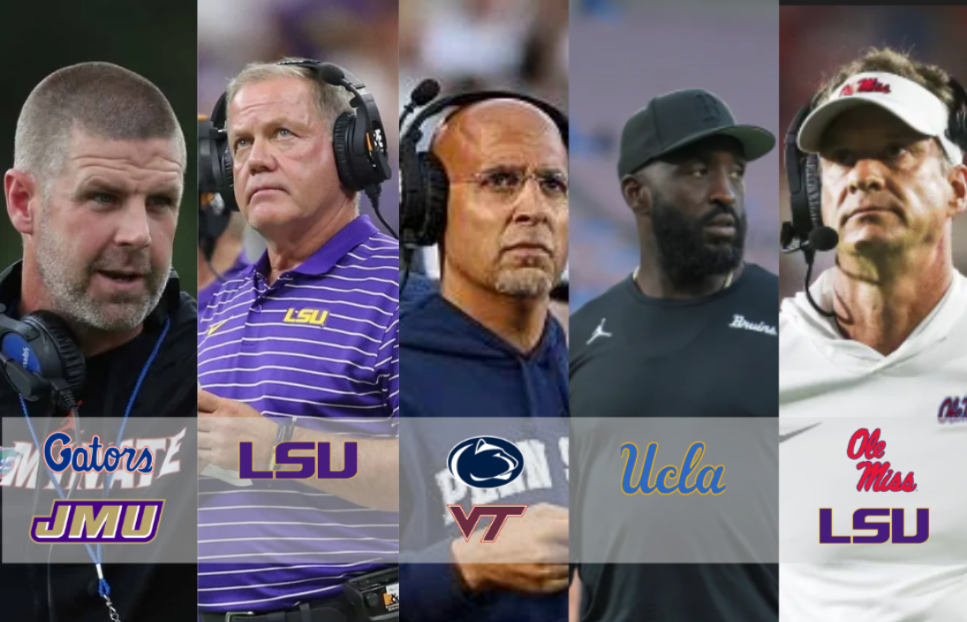
Every winter, the college football coaching carousel becomes one of the most dramatic leadership upheavals in American sports. In 2025, the carousel was particularly volatile. Multiple programs fired coaches earlier than expected, often mid-season, and then rushed into new hires within days. Boosters demanded decisive action; fans amplified pressure, and athletic directors made million-dollar moves under a microscope. For businesses, it’s easy to dismiss this annual churn as entertainment, but the reality is more nuanced. College football programs face the same leadership dilemmas that companies do - underperformance, culture challenges, stakeholder pressure, competitive threats, and the fear of losing momentum. The difference is that football programs confront these forces at hyper-speed - often making major personnel decisions in hours rather than months. This accelerated environment produces lessons, both good and bad, about how organizations respond when leadership is failing. Below are the Do’s and Don’ts businesses can take away from the way college football programs fire their coaches, and why they often rush into the next hire. DON’T: Fire Without a Succession Plan (Even If Pressure Mounts) One consistent theme from the 2025 season: several programs fired coaches with no clear successor in mind. UCLA’s dismissal of DeShaun Foster in just three games into the season was a perfect example. Foster was a high-profile alumnus with strong player relationships, but early losses led to escalating fan frustration and internal concerns about program direction. UCLA acted quickly to fire him, but doing so left the program scrambling for leadership and stability. They eventually hired Bob Chesney, who was a strong cultural fit, but the initial firing created unnecessary turbulence. Businesses often do the same thing. When a leader falters, the pressure to “do something” can eclipse the need for strategic succession. Boards and CEOs sometimes dismiss underperforming executives impulsively, leaving teams directionless and forcing rushed searches. Business takeaway: Before making a firing decision, especially under pressure, ensure you have: a temporary successor a vetted shortlist clarity on what the next leader must bring a transition plan for teams and clients Without this, you’re not solving a problem- you’re compounding it. DO: Define What Success Looks Like Before You Search A core crisis in many football firings is a lack of alignment between expectations and reality. Coaches are often fired not because they’re outright failures, but because the program never clearly defined what success meant. Look at LSU in 2025. Brian Kelly was fired despite a respectable record by national standards, but LSU boosters expected national contention every year. When performance slipped below that mark, the disconnect became untenable. Then, LSU got caught up in some unnecessary drama with misalignment from multiple stakeholders regarding who has hiring and firing authority. No wonder they never solved what “success” looked like. The same thing happens in business when leaders are hired under vague or overly ambitious expectations. If “success” means different things to stakeholders, the hire is set to fail. Business takeaway: Before starting your search: Define expectations concretely Align board and stakeholder vision Codify cultural priorities This ensures you hire for reality - not fantasy. DON’T: Hire in Haste Just to “Win the News Cycle” College football programs care deeply about perception. When a head coach is fired, boosters and fans expect immediate reassurance. That leads to knee-jerk hires where the priority is speed and optics rather than fit. The 2025 carousel saw multiple programs rush hires within days of firing coaches, sometimes skipping broader searches. Penn State was rumored to have engaged in serious discussions with 3 prospects, with all of them negotiating new deals with their current programs, before the Nittany Lions landed on Matt Campbell from Iowa State. Businesses do this too. After a public executive departure, companies sometimes hire quickly just to demonstrate control. But a fast hire that later fails is far more damaging than a slow, deliberate one. Business takeaway: Speed should never outrank strategy. A thoughtful process reassures stakeholders more than a rushed announcement ever will. DO: Learn From the Mistake and Adjust the Next Hire Accordingly Some programs in 2025 demonstrated a valuable principle: the second decision can fix the first, if you learn from it. UCLA’s rehire after firing Foster showed clear reflection. Their initial hire emphasized emotional connection and recruiting upside. But the next move, hiring Bob Chesney, emphasized proven systems, clear identity, and cultural alignment. UCLA changed its criteria and recalibrated its expectations. Similarly, Stanford fired Troy Taylor earlier in the year following concerns about program direction and culture. Their next hire, Tavita Pritchard, was a past member of the Cardinal’s coaching staff known for stability and alignment with Stanford’s academic and philosophical identity. Rather than repeating the same mistake, Stanford course corrected. Businesses often fail here. They fire a leader but then hire someone nearly identical, because the root cause of failure was never clearly articulated. Business takeaway: Post-mortem analysis is essential. Identify: What went wrong What was missing What stakeholders expected but didn’t receive What qualities matter most next time Then hire based on those insights - not simply on instinct. DON’T: Let Stakeholder Noise Dictate Decisions In college football, boosters, fans, media, and donors create a storm of pressure. This noise often accelerates firings or influences hires in unhealthy ways. Businesses face similar noise: activist investors, board factions, client concerns, internal politics, and public perception. Leaders who succumb to noise risk making short-term decisions that hurt long-term stability. Business takeaway: Listen to stakeholders, but don’t let them drive the process. Data, fit, and long-term strategy must guide leadership hiring. DO: Leverage Internal Talent When Stability Matters More Than Splash Amid the chaos of 2025, some programs opted for internal stability rather than external splash. While many schools chased headline-grabbing hires, others elevated coordinators and internal staff who already had trust equity with players. These transitions, including schools that promoted assistants after mid-season firings, created continuity in an environment where change was everywhere. Business takeaway: The flashy external hire is not always the right one. Internal candidates often bring: Quicker adaptation Stronger cultural alignment Built-in trust Reduced onboarding risk Especially after a turbulent departure, stability can be more valuable than novelty. DON’T: Underestimate the Ripple Effects of Leadership Turnover Firing in college football isn’t isolated. It affects: Recruiting Donor confidence Locker room morale Staff retention Public perception The same is true in business. Leadership changes impact: Client relationships Employee engagement Brand reputation Productivity Strategic continuity Business takeaway: Programs that manage these effects proactively, communicate openly, support interim leaders, and maintain messaging discipline reduce fallout. Businesses need to treat leadership transitions as enterprise-level events, not HR procedures. The 2025 college football season demonstrated how high-pressure environments reveal the strengths and flaws of leadership decision-making. Businesses can learn from both the impulsive mistakes and intentional successes that football programs showed this year. If businesses apply these lessons, they’ll avoid the chaos of the coaching carousel, while benefiting from the clarity it provides about leadership, culture, and long-term success.
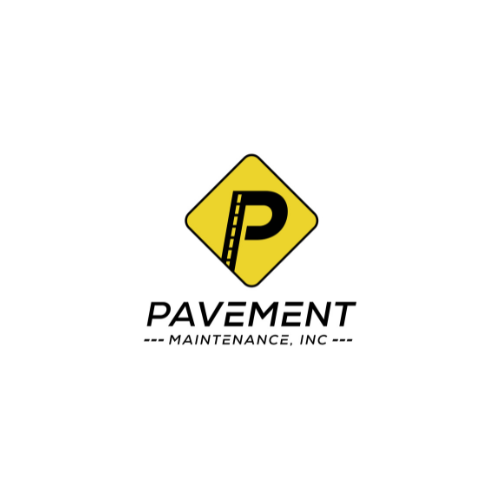
Vice President of Operations ABOUT THE COMPANY Founded in 1993 in Portland, Oregon, Pavement Maintenance Inc. (PMI) specializes in sealcoating, striping, pavement and concrete repair, and parking lot sweeping for leading property managers and facility owners throughout the region with its dedicated team of 100 employees. The company serves a diverse customer base across commercial, industrial, multifamily, retail, and healthcare properties, focused on recurring maintenance work and long-term customer relationships. With PMI’s acquisition of Vancouver Paving, its service offering expanded into all phases of paving, from minor repairs to new construction. In 2025, PMI joined Trinity Hunt Partners’ newly created paving services platform company Sage Surface Partners (“Sage”). Sage will be represented in the market with other best-in-class commercial paving services companies that share a strong commitment to quality, service, and their people. THE ROLE Reporting directly to the President of PMI, the Vice President (VP) of Operations will be a key member of the executive team, responsible for transforming and scaling the operational foundation of a small but growing pavement maintenance and repair company. This leader will combine strategic thinking with a hands-on, roll-up-your-sleeves approach to build systems, processes, and teams capable of supporting organizational growth. The VP of Operations will oversee field operations, project management, quality, safety, fleet/equipment, scheduling/dispatch, and customer satisfaction, driving operational discipline while preserving the agile, service-driven culture that has led to their market-leading position. RESPONSIBILITIES Operational Leadership & Scaling Build and mature operational infrastructure, including SOPs, workflows, and performance metrics, to support PMI growth targets. Provide day-to-day leadership of field and operations teams, ensuring high-quality and efficient delivery of our suite of pavement maintenance and paving services. Develop and implement initiatives such as business process modernization, cost optimization, and expansion readiness. People Leadership & Culture Development Model strong leadership behaviors, including clear communication, follow-through, integrity, and a commitment to developing others. Mentor and coach field leadership teams, helping them grow in decision-making, planning, and leadership capability. Promote a culture of ownership and engagement by empowering team members, recognizing strong performance, and fostering constructive problem-solving. Lead through change, helping employees understand the ‘why’ behind new systems, expectations, and processes that will support company growth. Project & Production Management Oversee scheduling, dispatching, crew planning, and resource allocation to ensure projects are delivered on time, within budget, and to quality standards. Introduce or refine project management tools and job costing practices to improve visibility and accuracy of operational performance. Identify bottlenecks and implement solutions that drive productivity and increase capacity. Safety, Compliance & Risk Management Strengthen the company’s safety culture through training, compliance monitoring, and the consistent application of best practices. Ensure adherence to OSHA, DOT, and other regulatory requirements across field operations. Establish scalable safety programs that can support future growth into additional markets. Fleet, Equipment & Materials Oversight Oversee procurement, maintenance, utilization, and lifecycle management of heavy equipment and materials. Streamline maintenance processes, ensure proper tracking systems are in place, and reduce downtime. Evaluate opportunities for capital investment to support efficiency and capacity improvements. Quality Assurance & Customer Experience Foster a customer-first mindset, ensuring work quality, communication, and responsiveness meet or exceed expectations. Handle escalated issues professionally, preserving customer relationships during a period of company transition and growth. Collaborate closely with sales and estimating teams to align operational delivery with customer commitments. Financial Stewardship & Strategic Execution Develop and manage operational budgets, forecasting production needs, staffing levels, equipment costs, and overtime management. Partner with the President and organizational leaders on reporting, KPI tracking, and operational improvement priorities. Provide insights and recommendations to leadership on growth opportunities, market expansion, and operational investments. QUALIFICATIONS Bachelor’s degree in Construction Management, Engineering, Business Administration, or related field preferred; equivalent experience considered. 7–10+ years of progressive leadership experience in construction or related service industries, or pavement maintenance operations. Experience working in a small-business environment, preferably during a phase of ownership transition or private-equity involvement. Strong background in building processes, implementing systems, and driving organizational maturity. Excellent leadership and communication skills, with the ability to motivate teams through change and rapid growth. Demonstrated expertise in scheduling, job costing, production management, and safety. Ability to be both strategic and hands-on—comfortable working in the field, in the office, and with investors. Interested in Learning More? 180one has been retained by PMI to manage this search. If interested in learning more about the opportunity, please contact Nicole Brady at 180one at 503.699.0184 / nicole@180one.com .
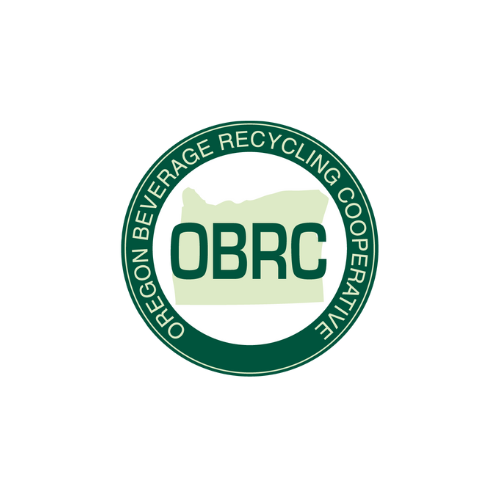
Chief Financial Officer ABOUT THE COMPANY Oregon Beverage Recycling Cooperative (OBRC) is the industry steward of Oregon’s nationally recognized beverage container redemption program. We help keep Oregon beautiful by providing outstanding services to our partner distributors, retailers and to the public for the recovery, reuse, and recycling of beverage containers. OBRC serves as a not-for-profit statewide operator with full vertical integration, making the co-op a major employer and providing more than 500 clean economy jobs in Oregon. Through our statewide fleet operations, OBRC collects more than 2 billion containers annually for recycling across a network of 2,000+ retail stores, 27 redemption centers, 90+ bag drop locations, and transports them for counting, sorting, and processing across 6 statewide processing centers, preparing these containers for Grade-A domestic recycling. At a dime per container, the value of refunds adds up fast. This requires speed and accurate reimbursements for retailers and payments directly to consumers and nonprofits. OBRC manages the flow of deposits and container refunds, paying out over $200 million annually to Oregon consumers. No similar system in America has consumers and the beverage industry is working so closely together to achieve outstanding results, and Oregon’s Bottle Bill is popular with consumers. OBRC is proud to serve as the industry steward of Oregon’s Bottle Bill, ensuring Oregon’s beverage container redemption program continues to produce positive results for Oregonians and inspiring positive change beyond our borders as a model program across the globe. THE ROLE As a strategic business partner to the CEO, this financial leader collaborates with the executive team to provide finance and accounting support for companywide operational departments and other partnerships. Drive business performance by influencing and executing strategies that further OBRC’s mission statement. RESPONSIBILITIES Advise in an active and supportive manner to the CEO, Board of Directors, and other executive team members on strategic plans with a focus on controlling costs and meeting budget goals. Lead the Finance and Accounting team to provide and interpret financial information to improve performance, efficiency, and decision-making across all departments. Influence executive decisions with data and respectful challenges to the status quo. Ensure sound financial management and control practices, including internal financial reporting, internal controls, audit and tax compliance, accounting, strategic and operational financial planning and analysis, budget preparation and reporting, management reporting, as well as insurance and risk management. Direct and manage the treasury function, including planning and forecasting cash flows and maintaining the primary relationship with banking partners. Partner with Human Resources in overseeing and managing employee retirement benefit plans and other benefit plans, including health insurance, life, and disability insurance. Manage OBRC patron relationships and lead the team members in monitoring and signing up new cooperative patrons. Successfully monitor the monthly reporting process by patrons to ensure compliance with service agreements. Consult and lead business departments during the annual budgeting process and any required forecasting to support capital and business development projects. Provide timely and accurate analyses of budgets, financial reports and financial trends. Ensure data systems can meet the company’s business objectives. Compare actual performance against forecast and recommend corrective action when actual performance is significantly unexpected. Provide monthly internal reports and periodic reforecasting of the current year’s financial and business plans. Oversee OBRC’s Loss Prevention Department, which emphasizes asset protection on a companywide basis and security at specified BottleDrop locations. Review legal documents and manage legal challenges in collaboration with the CEO/COO and legal counsel. Supervise and manage a team of employees, including recruitment and hiring of staff, performance management, discipline, and terminations. Other duties as determined by business needs. EDUCATION & EXPERIENCE A bachelor’s degree in finance, business, or other related fields is required. An MBA or an advanced degree is preferred. 15+ years of progressively responsible financial leadership experience required, with a preference for prior public accounting experience. At least 3 of those years should have been in a CFO or financial executive leadership role. CPA is preferred. REQUIREMENTS – KNOWLEDGE, SKILLS, AND ABILITIES Strong verbal and written communication skills; ability to break down complex analysis and communicate effectively to all levels of both internal and external partners. Demonstrated leadership ability, confidence, executive presence, and ability to motivate accounting and other employees. Self-starter who works with a sense of urgency. Strong organization skills with exceptional attention to detail, with a high level of accuracy. Proficiency and professional knowledge of MS Word, MS Excel, and Outlook. Adaptability, and the ability to approach changes and problems with curiosity, humor with the ability to change course. Technical financial knowledge, including cash-flow management, reporting, and analysis. Strong interpersonal skills to listen to understand different perspectives and motivations. Ability to assess a business problem quickly and identify solutions that address the root cause. Ability to delegate tasks and support the team by being hands-on during periods of high need. Ability to effectively manage people and performance to deliver improved team performance. Experience with coaching and mentoring direct reports and assisting with conflict resolution. Interested in Learning More? 180one has been retained by OBRC to manage this search. If interested in learning more about the opportunity, please contact Tom Haley / 503-334-1350 / tom@180one.com .
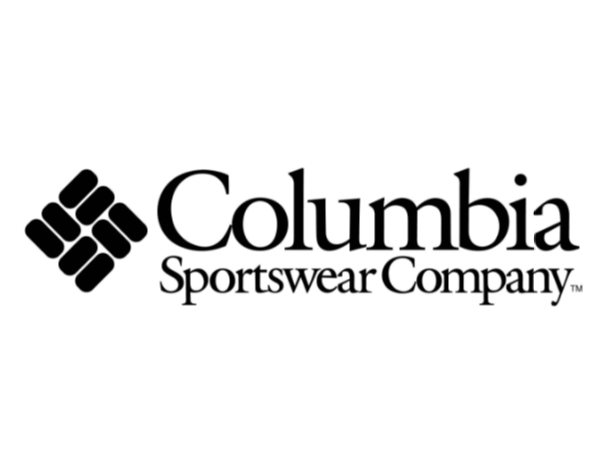
Senior Director of Investor Relations ABOUT THE COMPANY As a leader in the global active lifestyle apparel, footwear, accessories and equipment industry, Columbia Sportswear Company has assembled a portfolio of brands dedicated to connecting active people with their passions. In addition to the Columbia brand, Columbia Sportswear Company also owns the Mountain Hardwear, SOREL and prAna brands. Founded in 1938 as a small hat company in Portland, Oregon, Columbia Sportswear Company today has grown into an industry icon with $3 billion in annual sales. As a global company, its brands are now sold in approximately 90 countries. Based in Portland, Oregon, the company is dedicated to making no-nonsense apparel, footwear and accessories to keep consumers warm, dry, cool, and protected, no matter what. Defined by its innovative gear, Pacific Northwest heritage, irreverent spirit and family business ethos, Columbia’s products continue to gain worldwide recognition, enabling them to unlock the outdoors for everyone. THE ROLE The Senior Director - Investor Relations (“the Director”) is part of Columbia Sportswear Company’s (CSC) global finance organization and supports CSC’s senior leadership team optimally positioning the Company to create shareholder value. The primary goal of the Director is to educate and update current and prospective shareholders and investment analysts about our business strategies, trends, risks, financial results, financial outlook, and other relevant matters. Building and maintaining constructive relationships between CSC and the investment community is essential to success in this position. The Director works to successfully lead CSC’s investor relations and financial communications program supporting quarterly earnings releases and other shareholder and investor events including CSC’s annual shareholder meeting, non-deal roadshows, one-on-one meetings, investor conferences and other similar events. Additionally, the Director is responsible for analyzing and interpreting financial, operational, and other related performance metrics for the Company, its competitors, and other market players to prepare financial and other material press releases, presentations, talking points, Q&A documents and other key messages. This position is also responsible for the Company’s competitive intelligence program. This includes researching and analyzing business and financial shifts and trends impacting our customers, competitors, suppliers and other stakeholders in our industry and then communicating these insights to senior leaders and commercial business units. RESPONSIBILITIES Leads in the planning, preparation, drafting and distribution of investor relations related documents, including quarterly earnings releases, earnings release script, CFO commentary, Q&A documents, key messages and talking points. Builds and maintains relationships with sell side analyst community, and assists with communications between the Company and the investment community. Conducts investor targeting for investor conferences, non-deal roadshows, and other investor meetings. Maintains and updates investor relations calendar, including scheduling investor/analyst calls, earnings conference calls, investor conferences, non-deal roadshows and onsite meetings. Develops a thorough understanding of the Company by regularly engaging with business and financial leaders to understand the Company’s business strategies, initiatives, risks, regulatory environment, financial plans and other significant matters relevant to investors. Creates and updates investor relations presentations for use in communicating with the investment community as well as similar financial presentation materials for internal use to the Company’s worldwide employee base. Manages Investor Relations portion of the Company’s website, including the creating and updating of content. Support finance and legal with reporting obligations including quarterly and annual SEC filings, and other reporting commitments. Manage creation of the Annual Report to Shareholders and partner with legal on the creation of the Proxy Statement and execution of the Annual Shareholder meeting. Monitors competitor and market information obtained from analyst reports and media sources; compiles relevant information into summaries for distribution to CSC’s senior leadership team and other relevant stakeholders. EDUCATION, EXPERIENCE & SKILLS REQUIRED Undergraduate degree in Finance, Business, Accounting, Communications or related field, MBA, or CPA a plus. At least ten years of broad business experience in multiple disciplines such as investor relations, investment banking or sell-side or buy-side research. Expert level of knowledge related to investor relations and SEC disclosure regulations, accounting practices, international business, and financial markets. High degree of financial literacy with attention to detail and accuracy. Excellent interpersonal, oral, and written communication skills, including presentation skills. High degree of organization and efficiency with demonstrated attention to detail. Demonstrated accountability and ability to meet deadlines. Ability to work both independently and collaboratively. Dynamic and disciplined thinker with intellectual horsepower. Highest ethical standards, integrity, authenticity, credibility, and character. Professional demeanor and ability to interact with persuasiveness and confidence. Impeccable judgement and maturity. JOB SCOPE Position is highly complex and frequently involves new and varied work situations. Performs duties under little supervision. Determines his/her own practices and procedures and contributes to the development of new ones (company-wide). Decisions are made within general company policy and legal guidelines. Mistakes/errors may result in the dissemination of incorrect information, which may impact investor relations. Ability to work under pressure and respond to intense questioning related to CSC’s financial position. Able to prioritize workload and manage multiple projects independently. Ability to problem solve, analyze/understand complex finance and accounting issues, and financial statement relationships. Able to read, retain and explain internal and external information on CSC’s business and the dynamics of markets and competitors. Communicate with investors and balance their need-to-know against company disclosure policies. Some travel is required. INTERPERSONAL CONTACTS Contacts are with others both inside and outside the organization, including significant engagement with the external investment community. Interactions usually involve information exchange of confidential and sensitive information. Interested in Learning More? 180one has been retained by Columbia Sportswear to manage this search. If interested in learning more about the opportunity, please contact Lisa Heffernan / 971.256.3076/ lisa@180one.com .

In today’s hyper-competitive business environment, retaining top talent has become one of the most pressing challenges for organizations of all sizes. According to recent data, 76% of private company executives consider talent retention a key to remaining competitive , and for good reason. The cost of replacing an employee can reach up to two times their annual salary, not to mention the loss of institutional knowledge, customer relationships, and team morale that often follows. Yet despite leaders recognizing its importance, 51% of employees are actively looking for or open to a new opportunity . This means that roughly half of your workforce could walk out the door at any time if they find a better offer, stronger culture, or more growth potential. In such a landscape, retention isn’t just an HR function; it’s a strategic imperative. Below, we explore the key drivers of employee retention and how companies can build a culture that keeps their best people engaged, loyal, and thriving. 1. Build a Culture of Recognition and Trust People don’t just work for paychecks—they work for appreciation. Studies show that 71% of employees would be less likely to leave if they were recognized more frequently . Recognition goes far beyond annual awards or performance reviews; it’s about cultivating a daily culture of appreciation. When employees feel that their contributions are valued, they’re more motivated, more loyal, and more invested in the company’s success. But recognition must be genuine and consistent. It can take many forms: a manager’s public praise in a meeting, a peer-to-peer “thank you” program, or even a personalized message from leadership. Recognition reinforces belonging, and belonging drives engagement. However, appreciation alone isn’t enough if leaders fail to act on employee feedback. When organizations solicit feedback but do nothing with it, it creates frustration and mistrust. Employees start to believe leadership doesn’t listen, which erodes morale. Transparency about what’s being done with feedback, whether changes are implemented or not, is essential to maintaining trust and retention. 2. Strengthen Leadership and Management Quality It’s often said that people don’t quit jobs, they quit managers. The data support this: seven out of ten workers who quit their jobs do so because of a bad manager . Poor management can take many forms, micromanagement, lack of communication, inconsistent expectations, or insufficient support. Whatever the cause, bad management destroys engagement faster than almost any other factor. To retain your best talent, invest in developing your leaders. Provide training on emotional intelligence, communication, and conflict resolution. Encourage managers to hold regular one-on-ones that focus on coaching rather than just task management. Good leaders inspire people to stay and grow; bad ones drive them away. Organizations that prioritize leadership development send a clear message: we care about your experience here, not just your output. 3. Make Onboarding an Experience, not a Process The employee experience starts on day one. A strong onboarding program sets the tone for engagement, connection, and retention. Research shows that 69% of employees are more likely to stay for at least three years after a great onboarding experience . That’s a powerful return on investment for something many companies still treat as a checklist exercise. Effective onboarding goes beyond paperwork and orientation. It integrates new hires into the company culture, connects them with mentors, and helps them understand how their role contributes to the organization’s mission. The first 90 days are critical; employees decide whether they see a long-term future with the company based largely on this period. Investing in structured, meaningful onboarding experiences pays dividends in loyalty, productivity, and morale. 4. Offer Continuous Learning and Career Growth In an era of rapid technological change, professional development is not just a perk; it’s a necessity. 94% of employees say they would stay longer if they had more learning opportunities. That statistic should grab every executive’s attention. Employees want to grow, evolve, and feel like they are moving forward in their careers. Creating a culture of continuous learning means offering access to courses, mentorship programs, cross-departmental projects, and leadership pathways. It also means making learning accessible through digital platforms, lunch-and-learns, or sponsorships for certifications. Career stagnation is one of the biggest drivers of turnover. When employees see no path upward, they start looking outward. Companies that invest in developing their people not only improve retention but also future-proof their workforce for tomorrow’s challenges. 5. Align Compensation with Value While culture, recognition, and growth matter deeply, compensation remains a critical factor. Fifty-six percent of employees say compensation is a top reason they would consider leaving . Fair pay isn’t just about keeping up with competitors; it’s about showing employees they are valued. This doesn’t always mean being the highest-paying employer in your market, but it does mean being competitive and transparent. Regular salary benchmarking, performance-based bonuses, and clear communication about pay structures build trust and loyalty. Additionally, benefits play a huge role. Health insurance, retirement contributions, flexible work arrangements, and mental health resources are all part of the total compensation package employees evaluate when deciding whether to stay. 6. Foster a Sense of Purpose and Belonging Employees today are looking for more than just a job; they’re looking for meaning. They want to know if their work has purpose and that their company stands for something beyond profit. This is especially true for younger generations entering the workforce. Creating purpose means connecting daily tasks to the broader mission and impact of the organization. When employees understand how their work contributes to something bigger, whether it’s serving customers, improving communities, or driving innovation, they’re more likely to stay committed and engaged. Belonging also plays a major role. Inclusive cultures where diverse voices are valued foster higher engagement and retention. Employees should feel they can bring their authentic selves to work without fear of judgment or exclusion. 7. Use Data to Drive Retention Strategy Retention isn’t a guessing game; it’s measurable. Use employee engagement surveys, turnover data, and stay interviews to understand why people stay and why they leave. Look for patterns by department, manager, or tenure. Once you identify the drivers of turnover, act quickly. Whether it’s improving communication, adjusting workloads, or rethinking career paths, data-driven decisions allow you to focus resources where they’ll have the greatest impact. Remember: what gets measured gets improved. Retaining top talent isn’t just an HR initiative - it’s a company-wide commitment. From executives to front-line managers, every leader has a role to play in creating an environment where people feel valued, supported, and inspired to stay. In the end, companies that treat employees as their most valuable asset - and act accordingly- will not only retain their best talent but also attract more of it. In a world where skilled workers have more choices than ever, the organizations that win will be those that make people want to stay.
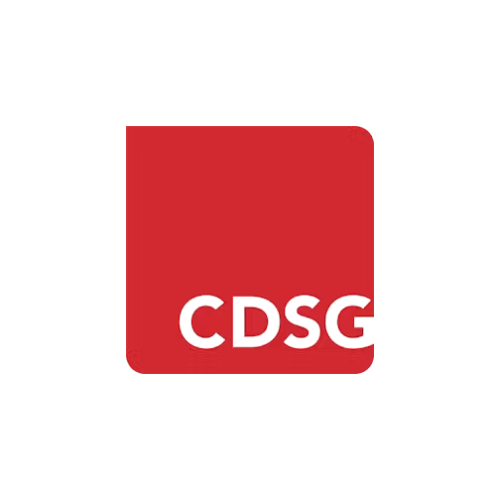
Chief Financial Officer ABOUT THE COMPANY CRU Data Security Group (CDSG) is a leading innovator and manufacturer of industrial-grade flash storage, secure storage products, and removable secure data solutions. With its OEM partners, CDSG supports security-conscious customers worldwide, including government agencies, military organizations, and corporations of all sizes. The company’s portfolio includes highly secure solid-state drives (SSDs), removable SSDs, disaster-proof storage devices, and forensic investigation tools. These purpose-built solutions are engineered to deliver the highest levels of security, durability, and performance, ensuring mission-critical data is protected whether operating at the edge, in the field, or behind the firewall. In 2025, Seattle-based private equity firm Pike Street Capital made a strategic investment in CDSG to accelerate growth through product innovation and targeted acquisitions. THE ROLE CDSG is seeking an experienced and results-driven Chief Financial Officer (CFO) to lead the financial strategy and execution of their high-growth business. The CFO will play a critical role in enabling both organic and acquisitive growth, optimizing operations, and driving value creation in partnership with the CEO and private equity sponsor. This is a hands-on executive leadership role ideal for a proven financial leader with a track record of operating in dynamic, performance-driven environments. RESPONSIBILITIES Executive & Strategic Leadership Serve as a strategic partner to the CEO and executive team, actively contributing to policy, direction, and long-term planning. Help define and execute the company’s growth strategy in alignment with operational, financial, and market objectives. Drive a high-performance culture through accountability, transparency, and collaboration. Lead by example, setting the tone and culture across the organization. Operate as a player/coach, comfortable building models, developing presentations, and engaging directly in critical business issues. Attract, develop, and retain top-tier financial and operational talent. Lead major business initiatives and projects (e.g., productivity improvement, pricing strategies) with measurable results. Shoulder broad business leadership responsibility, beyond traditional finance functions. Financial Planning & Analysis (FP&A) Own the development and ongoing refinement of annual budgets, monthly forecasts, and long-term financial planning. Track and maintain key performance indicators (KPIs) to measure performance against strategic goals. Conduct hands-on analysis of financial performance, with actionable insights to achieve growth and EBITDA targets. Lead investment analysis and decision support, including customer pricing models and full business case development. Demonstrated expertise in labor cost management and margin improvement strategies. Bring experience across multiple ERP platforms; ERP selection and implementation experience is highly preferred. Accounting & Financial Operations Oversee all accounting and finance functions, ensuring accuracy, integrity, and timeliness of financial information. Prepare and deliver comprehensive financial reporting packages, including monthly P&L, balance sheet, cash flow, and covenant compliance. Ensure all financial statements are prepared in accordance with GAAP and meet internal and external stakeholder requirements. Lead all month-end close activities, including general ledger, balance sheet reconciliations, and overhead allocation. Enhance and scale accounting processes, systems, and internal controls to support company growth. Coordinate the annual audit process, ensuring unqualified audit results. Lead the preparation and management of company-wide budgets, including revenue and capital expenditure planning. Treasury & Working Capital Management Lead cash flow forecasting, management, and decision-making around weekly cash disbursements. Improve the full cash cycle, credit policy, collections, inventory, and payables management. Manage lender relationships and covenant compliance. Use forward-looking cash flow analysis to guide capital structure decisions and working capital strategy. M&A & Private Equity Engagement Collaborate with the leadership team, private equity sponsors on M&A activities. Experience or understanding of value creation planning, reporting, and board-level communication. EDUCATION, EXPERIENCE & SKILLS REQUIRED Bachelor’s degree in finance, accounting, business administration, or a related discipline; CPA and MBA strongly preferred. Extensive experience in senior financial leadership roles, ideally within a private equity-backed or high-growth environment. Deep understanding of financial and operational disciplines, including P&L ownership, balance sheet management, cash flow optimization, and capital allocation. Demonstrated experience in corporate governance, risk management, and regulatory compliance. Proven ability to lead complex negotiations related to financing, vendor agreements, M&A, and commercial terms. Expertise in budgeting, forecasting, financial modeling, and working capital management; prior public accounting experience is a plus. Strong business acumen with the ability to quickly assess new challenges and make sound, data-driven decisions in a dynamic environment. Natural leadership presence with the ability to build trust and credibility across all levels of an organization and with external stakeholders. Resilient under pressure with a disciplined approach to prioritization, execution, and delegation. Exceptional communication skills—both written and verbal—with the ability to clearly articulate financial concepts to non-financial stakeholders. Committed to service excellence, with strong interpersonal skills and a collaborative leadership style. High attention to detail and precision, balanced with the ability to think strategically and see the broader business context. Interested in Learning More? 180one has been retained by CDSG to manage this search. If interested in learning more about the opportunity, please contact Nicole Brady at 180one at: 503.699.0184 / nicole@180one.com .

In today’s business climate, reorganizations have become the norm rather than the exception. Companies shift structure to respond to market changes, streamline costs, adopt new technologies, or realign with strategy. But while the headlines focus on job cuts or new leadership, one critical factor often overlooked in the success or failure of a reorganization is managerial span of control : the number of direct reports assigned to each manager. When companies get this wrong, they risk derailing even the best-planned structural change. When they get it right, the results include faster decision-making, improved employee engagement, and better execution of strategic goals. So how do the most successful companies handle this delicate balance during a reorg? The Pitfalls of Overloading Managers The pressure to do more with less can tempt organizations to increase the number of employees reporting directly to each manager. After all, fewer managers mean lower salary overhead, less bureaucracy, and theoretically, a leaner, faster organization. But research consistently shows that increasing a manager’s span of control beyond a certain point leads to declining effectiveness , both for the manager and their team. According to a comprehensive study by Bain & Company, companies with top-quartile performance in productivity and employee engagement tend to cap manager spans at no more than 7 to 10 direct reports , depending on the complexity of the work and the level of autonomy of the team. Beyond this range, several problems begin to surface: Decreased coaching and development time: With too many direct reports, managers struggle to provide regular feedback or support individual growth. Slower decision-making: Managers become bottlenecks as more team members wait for approvals or guidance. Increased burnout: Overloaded managers report higher levels of stress, disengagement, and turnover. Reduced innovation: Less time for strategic thinking means less opportunity to solve problems creatively or improve team performance. Harvard Business Review echoes this concern, noting that “as spans widen, the average quality of management and leadership drops,” especially in knowledge-driven or high-complexity work environments. Span of Control: One Size Doesn’t Fit All So what’s the right number? The answer depends on context , and smart companies know that not all roles, teams, or business units require the same structure. Key variables include: Task complexity: Teams doing routine, repeatable work (like call centers or transactional processing) can operate effectively with spans as wide as 15-20 direct reports. In contrast, research and development teams often require narrower spans due to higher collaboration and oversight needs. Employee experience: Highly experienced, autonomous employees require less hands-on supervision, allowing for broader spans. Manager capability: Not all managers are equally equipped to handle large teams. Leadership training, experience, and support systems (like team leads or AI tools) can influence optimal span. Organizational culture: Companies with strong cultures of self-management and clear accountability structures may tolerate wider spans without performance drops. A 2023 McKinsey report emphasizes this variability, stating, “Leading companies tailor spans of control by role and level, not by arbitrary benchmarks.” Case in Point: Reorg Success Stories Let’s look at a few organizations that have successfully navigated reorgs by paying close attention to managerial spans: 1. Microsoft During Satya Nadella’s early tenure as CEO, Microsoft underwent a major organizational overhaul to break down silos and improve collaboration. A key part of the strategy was flattening the org , but not indiscriminately. Nadella emphasized “clarity of purpose” and invested heavily in leadership development to ensure managers were ready to handle broader spans only where appropriate. The result? Productivity rose, engagement improved, and innovation accelerated across product teams. 2. Procter & Gamble (P&G) P&G restructured in the early 2010s to reduce costs and improve agility. Rather than simply cutting layers, the company also reassessed manager-to-employee ratios by function. In areas like finance, where standard processes prevail, spans increased. In innovation and marketing roles, they were kept tight to preserve creativity and oversight. The tailored approach helped P&G maintain performance through a major shift. 3. Spotify Famous for its “squad” model, Spotify empowers small autonomous teams with clear leadership support. Managers, often called Chapter Leads, have limited spans to ensure close mentorship and skill development within specific technical domains. This model has supported Spotify’s growth while preserving agility and innovation. Practical Guidance for Leaders Planning a Reorg If your company is considering, or currently navigating, a reorganization, here are five evidence-based principles to keep in mind: 1. Start with the work, not the structure Begin by analyzing the actual tasks teams are responsible for. How complex is the work? How interdependent are the roles? What level of oversight is needed? Design the structure around the needs of the work, not arbitrary span targets. 2. Avoid flattening without a function Flattening layers can reduce costs, but it can also create chaos if not executed thoughtfully. Ensure that wider spans are matched with the right capabilities, tools, and cultural support. 3. Invest in manager readiness If you do decide to widen spans, ensure your managers are trained in time management, delegation, coaching, and the use of technology. Even experienced managers can falter without support. 4. Use data to monitor and adjust Keep track of KPIs like employee engagement, turnover, decision speed, and manager satisfaction post-reorg. These can provide early warning signs if spans are too wide or teams are struggling. 5. Communicate clearly and consistently Structural changes can breed uncertainty. Communicate not just what is changing, but why, and how it will improve the experience for both managers and their teams. Structure Should Enable Strategy A reorganization is not just a reshuffling of boxes on an org chart, it’s an opportunity to realign your workforce with your business goals. But even the most visionary strategy will falter if leaders are overwhelmed, disengaged, or unsupported. As the research shows, successful reorgs pay close attention to the human factor. Avoiding overly wide spans of control is not about bureaucracy; it’s about enabling leaders to lead .
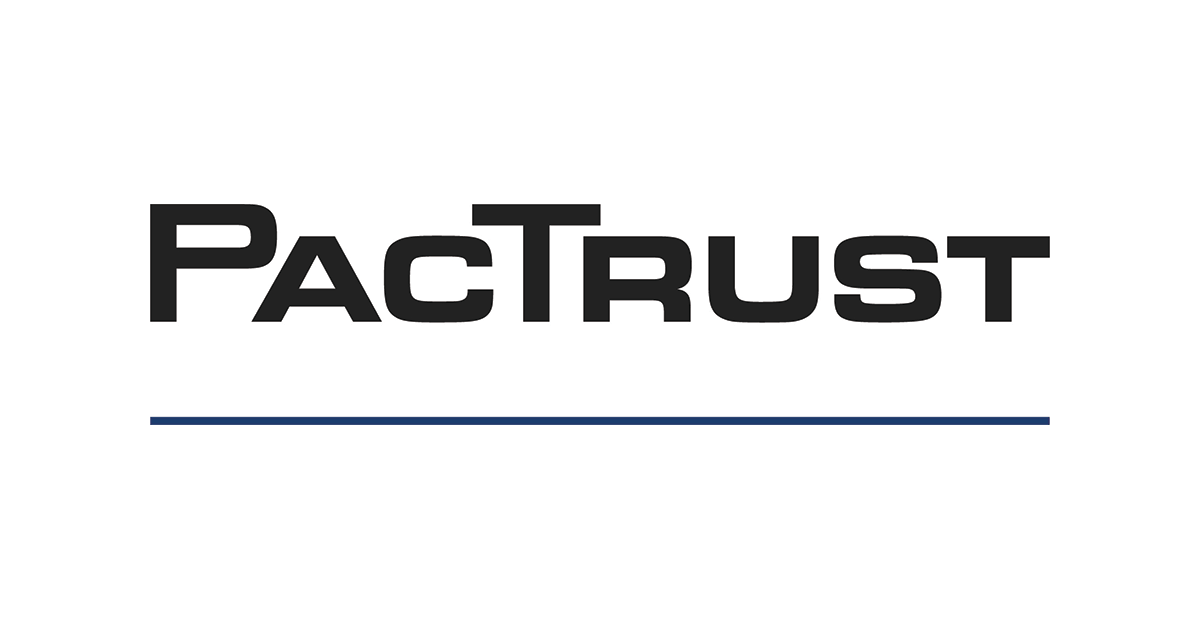
Controller ABOUT THE COMPANY Pacific Realty Associates, L.P. (“PacTrust” or the “Firm”) is a fully integrated real estate development and investment firm based in Portland, Oregon. PacTrust has been active in commercial real estate for more than 50 years and is among the largest real estate developers and investment property owners in the Pacific Northwest. The Firm’s real estate portfolio consists of industrial, industrial/flex, office, retail, hospitality, and agricultural properties, with assets in the Pacific Northwest, California, Texas, and Maryland. www.pactrust.com. THE ROLE PacTrust is seeking a Controller to join its corporate headquarters in Portland, Oregon, reporting directly to the Chief Financial Officer. The candidate will be a key member of the team and be responsible for overseeing all financial accounting, debt reporting & compliance, treasury, financial planning & analysis, tax planning, and filing. Additionally, the candidate will collaborate with the Firm’s investment and asset management teams and will be involved with the operations of the business, specifically related to budget and forecast analysis. Qualified candidates must be self-motivated, extremely detail-oriented, organized, and intellectually curious, and must have deep experience working with and managing teams. The Controller must also embrace the Firm’s collaborative and positive culture, be an effective multitasker, and be comfortable working with and supporting various departments and functions. The Firm benefits from a strong, long-standing capital structure with established policies and procedures, but the Controller will be a key member of the Senior Management team tasked with guiding the Firm into the future and growing the business. The Controller will manage a team of accountants, with additional headcount potentially added in the future based on growth and/or reporting needs. RESPONSIBILITIES The Controller will lead the Firm in the following areas: Financial Accounting & Reporting Manage monthly and quarterly financial statement preparation and related reports and projections. Prepare subsidiary financials and review monthly financial packages from joint-venture partners. Review and approve various balance sheet account reconciliations. Oversee fixed asset accounting and maintain all depreciation schedules within the Firm’s Fixed Asset System (Sage). Prepare valuation support schedules and related reports for quarterly fair value accounting purposes. Set up and manage construction jobs in the Firm’s ERP system (Yardi) to ensure appropriate capitalization of development expenses. Treasury: Ensure the Firm’s cash disbursement and cash management controls are appropriately adhered to and adequately documented. Prepare cashflow forecasts and monitor cash receipts to ensure sufficient liquidity at all times. Administer the Firm’s credit card platform (US Bank) and process daily ACH clearings and vendor updates. Administer the Firm’s cash disbursement system (SinglePoint) and setup/approve ACH, book, and wire transfers. Financial Planning & Analysis: Prepare annual budgets for the Firm’s operating company and managing member entities, with monthly forecast updates. Tax Planning & Filing: Coordinate annual tax return preparation with the Firm’s third-party tax advisor (Deloitte) and ensure all filing requirements are satisfied. Prepare tax work papers for the various entities under management. Prepare quarterly estimated taxable income projections and estimated required tax payments. Prepare and process personal property tax filings for various jurisdictions, as required. Process tenant association tax returns, where applicable. Team Leadership & Development: Lead, mentor, and develop a high-performing accounting team. Foster a culture of continuous improvement, promoting efficiency, accuracy, and best practices. Manage performance, establish clear development goals, and provide ongoing coaching for team members. Other: Coordinate annual audit with the Firm’s third-party auditor (Deloitte) and oversee preparation of audit workpapers. Prepare, on an annual basis, lease analysis files for each park with corresponding updates in Yardi as necessary. EDUCATION, EXPERIENCE & SKILLS REQUIRED Education Bachelor’s Degree in Accounting or Finance required CPA strongly preferred. Knowledge & Experience 10+ years of professional experience with prior controller or similar experience required. Experience with commercial real estate and real estate development accounting and reporting is preferred. Working knowledge of real estate valuation frameworks (discounted cash flow, cap rates, etc.) and financial concepts is preferred. Working knowledge of real estate development and asset management functions is preferred. Working knowledge of tax concepts and considerations as they relate to commercial real estate investment and legal entity structuring is preferred. Skills & Abilities Proven track record of building and managing high-functioning teams. Impeccable integrity and honesty. Exceptional analytical, problem-solving, and strategic thinking abilities. Collaborative and effective team player. Proficient with ERP systems and MS Office Suite. Yardi experience a plus. Excellent interpersonal, oral, and written communication skills; strong presentation skills. Initiative-taker with high energy and commitment to work within a dynamic, collaborative and entrepreneurial environment. Strong business writing skills. Ability to build and manage strong relationships internally and externally. Accountable to deadlines with the ability to manage and prioritize work. PacTrust is an equal opportunity employer. All qualified applicants will receive consideration for employment without regard to race, religion, color, national origin, sex, age, genetic information, sexual orientation, gender identity, status as a protected veteran, or status as a qualified individual with a disability, or any other characteristic protected by applicable Federal, State, or Local law. Interested in Learning More? 180one has been retained by PacTrust to manage this search. If interested in learning more about the opportunity, please contact Lisa Heffernan / 971.256.3076/ lisa@180one.com .

